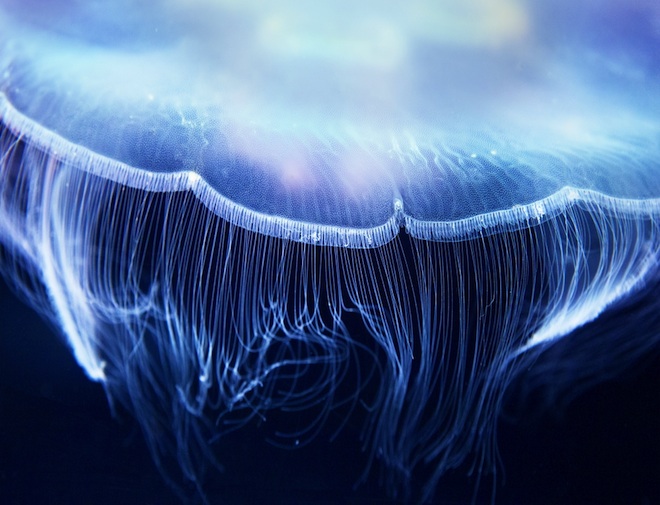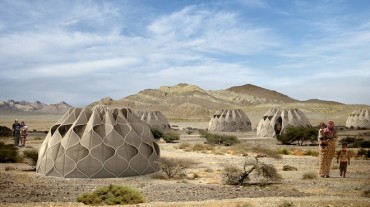 Until you have babies, the true awfulness of diapers doesn’t really set in. But ask the modern parent, who will buy up to 2,800 mostly non-biodegradable diapers in their baby’s first year. Then they will chuck most of them in the trash. Cine’al has at least one solution: hyper-absorbent diapers made with jellyfish.
Until you have babies, the true awfulness of diapers doesn’t really set in. But ask the modern parent, who will buy up to 2,800 mostly non-biodegradable diapers in their baby’s first year. Then they will chuck most of them in the trash. Cine’al has at least one solution: hyper-absorbent diapers made with jellyfish.
Our oceans are changing. Not only are they overfished, but high acidity and warmer temperatures create a welcoming environment for jellyfish. Indeed, many scientists warn of the day that we’ll all be eating jellyfish stir fry.
Turns out, though, the exploding jellyfish population may be useful for an Israeli nano tech startup that makes earth-friendly absorbent goods such as diapers, “paper” towels, and even sanitary pads.
“Jellyfish are marine creatures composed of 90% water and that live in water. Their bodies are formed from material that can absorb high volume of liquids and hold them without disintegrating or dissolving,” according to Capital Nano, a leading nano tech investor in Israel that is raising funds to scale up Cine’al.
Related: World sees scary transition to seas full of jellyfish
This new material, called hydromash, is made with jellyfish and nano particles that give them the flexibility to add antibacterial and self-healing properties. It is capable of absorbing high volumes of water and blood in seconds.
“The Hydromash absorbs more than several times its volume (meeting the most challenging application requirements),” according to Capital Nano, “and biodegrades in less than 30 days (faster than any other bio-degradable products such as bio-degradable diapers made out of pulp.)”
The group would work with local governments that spend a great deal of money extracting jellyfish from the ocean, after which they become an environmental problem, since they have to be disposed of.
Cine’al can alleviate this problem by scooping up jellyfish at designated sites, dehydrating them and processing them to be used as a biodegradable super-absorber.
Led by Eran Fine (CEO) and Ofer Du-nour (Chairman and President), Cine’al is currently in discussions with partners in Korea and South Carolina, which they hope will result in the establishment of manufacturing plants near jellyfish collection sites.
Image of diaper baby, jellyfish via Shutterstock




4 thoughts on “Hyper-absorbent diapers made from jellyfish biodegrade in under 30 days”
Comments are closed.